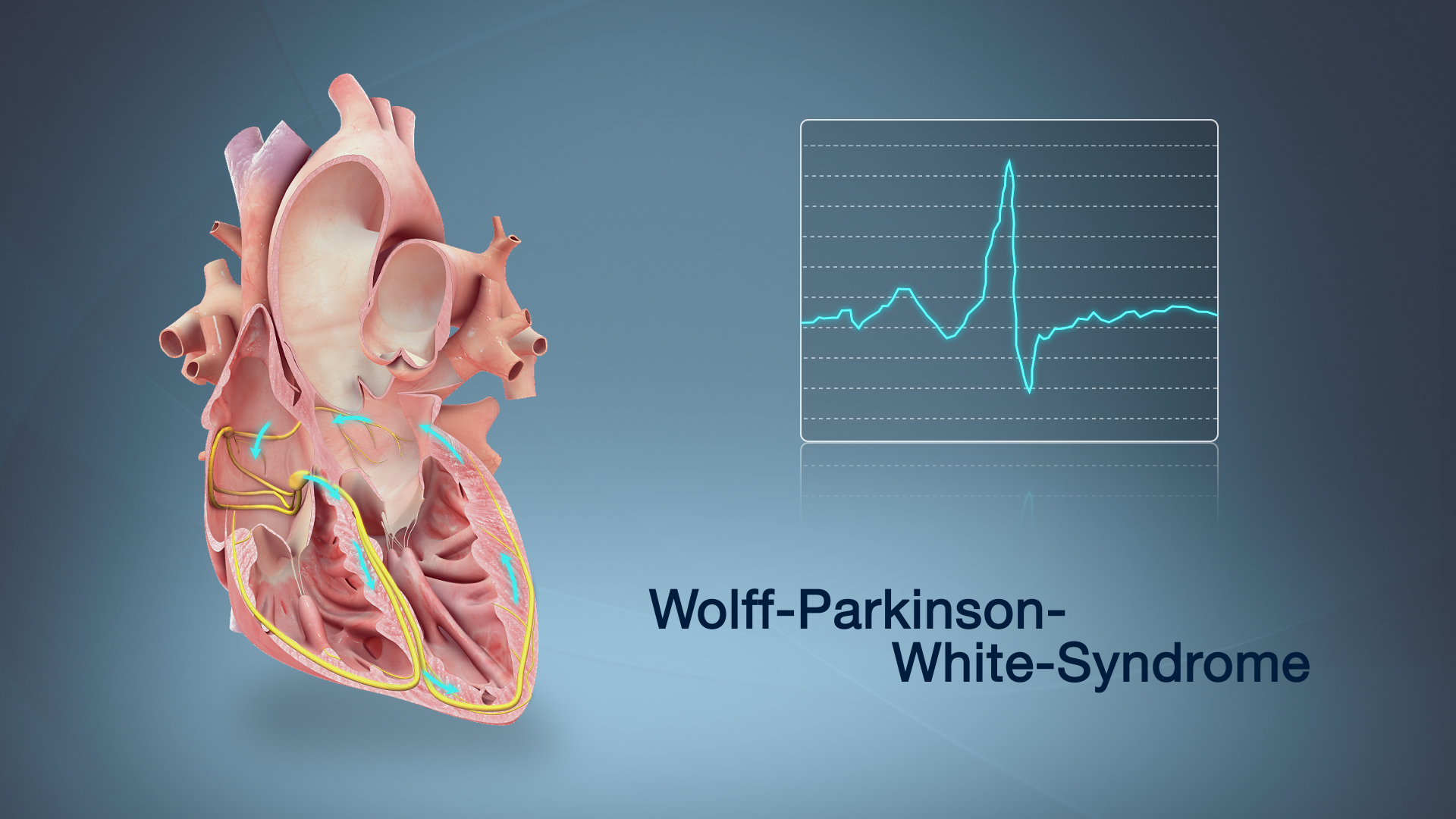Wolff-Parkinson-White (WPW) syndrome is a rare type of birth defect, in which the patient’s heart beats at a rapid pace due to the development of an aberrant or extra electrical pathway. This rapid beating is known as tachycardia and can be mitigated with other symptoms through proper medication. The extra electrical pathway develops between the upper and lower chambers of the heart and causes serious heart problems.
Most people suffering from this disorder have no fast heartbeat, and this condition is discovered by chance during a heart examination.

Symptoms
The first sign of Wolff-Parkinson-White syndrome is generally a rapid heart rate. This syndrome can occur in infants or adults. The signs and symptoms in infants include:
- Shortness of breath
- Ashen/Grayish/Bluish skin color
- Restlessness or irritability
- Loss of appetite
- Heavy fatigue or lethargy
- Rapid, visible pulsations on the chest or heart palpitations
The signs and symptoms in adults and children include:
- Anxiety
- Dizziness and lightheadedness
- Fainting or Syncope episodes
- Panic
- Shortness of breath, or trouble in breathing
- Heart palpitations or a racing heart or chest pain
- In rare cases, sudden death
It has been observed that these symptoms can occur periodically in some people for a short time and sometimes fail to appear in a few people. Consumption of beverages having caffeine or alcohol can trigger these symptoms in some, while others can experience them while exercising or even resting.
Causes
According to resources, medical researchers haven’t been able to find out the exact cause behind this rare birth defect. Some of the resources claim that this extra electrical pathway is the result of an abnormal gene present in some people.
WPW syndrome is related to some forms of congenital heart disease such as Ebstein anomaly. In WPW syndrome, an extra pathway connects the patient’s atria and ventricles, providing an electrical pathway to bypass the atrioventricular or AV node. This activates the ventricles too early. The extra pathway also allows the transmission of electrical impulses from the ventricles back to atria making the heart rhythm unstable.
Some people might also suffer from fainting spells, faster heartbeats, and maybe sudden cardiac arrests if this syndrome is left untreated.
Treatment
There are several treatment options available to treat WPW syndrome. Doctors recommend the treatment option based on the symptoms and severity of the disease. Some of the treatment options for people with symptoms include:
- Medications: As per records, doctors have been seen recommending anti-arrhythmic drugs such as amiodarone and adenosine, so that the abnormal heart rhythms could be controlled.
- Surgery: Patients suffering from another heart condition with this defect are usually recommended for surgical treatments, like open-heart surgery, by the physicians.
- Catheter ablation: This is the most common method of treatment. Through this procedure, doctors try to destroy the extra electrical pathway present in the patient’s heart, by inserting a tiny catheter into an artery of the groin area, threading it up to the heart. When it reaches the heart, the electrodes are heated and then the procedure destroys the area that’s causing abnormal heartbeat through radiofrequency energy.
- Electrical cardioversion: This treatment method is used by the doctors when medications fail. An electric shock is given to the heart of the patient which can restore the patient’s heart rhythm. This is done when the patient is put on sleep through anesthesia. This treatment is prescribed only when the symptoms aren’t relieved by other treatment methods.
- Artificial pacemaker: Patients suffering from irregular heartbeat after treatment are implanted with an artificial pacemaker to regulate their heart rhythm.
Disclaimer: The information in no way constitutes, or should be construed as medical advice. Nor is the above article an endorsement of any research findings discussed in the article an endorsement for any of the source publications.








